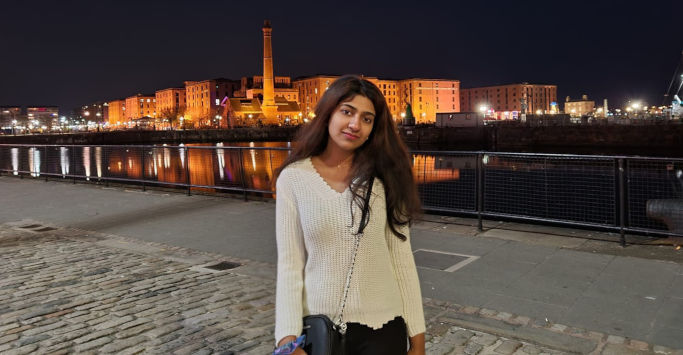
Looking back on her first year on the MBChB programme, Student Doctor Meera Shankar is hard pressed to pick her favourite highlight, but she might just have to go with the invitation to present at a TEDx event, which she describes as a dream come true.
Meera, now in year two of her studies, made quite a splash during her first year at the School, seizing opportunities to present at a wide range of conferences, and picking up best oral presentation at Norwich International Undergraduate Surgical Conference 2021, as well as best student poster presentation at the Medical Women’s Federation Annual Symposium 2021.
She was one of only three presenters chosen from 200 applicants to speak at Birmingham Surgical Symposium International Undergraduate Conference in March of this year.
Meera shares more on an exciting year which included a talk entitled ‘Public Health Literacy: The prescription to end confusion’ at a TEDx event by the University of Essex and leading a course on ‘Medical Research for Dummies: Introduction to Medical Research’ for over 200 students at Stanford University this summer.
Research findings & proposed solutions
“I worked on multiple research projects during first year in a variety of specialities and had the opportunity to present my work at national and international conferences as well as be published in medical journals.
One piece of work explored the experiences and perceptions of women in surgery and revealed the three major barriers to pursuing a surgical career were lack of maternity support, inadequate childcare services and pay inequality.
In another study, I analysed the impact of the COVID-19 pandemic on the mental health of healthcare providers which showed that although participants felt they were making a positive impact to peoples’ lives, most of them felt they were working too hard and were experiencing burn-out.
It was my research on women in surgery that earnt me the prizes of best oral presentation and best poster presentation and commendation for the solutions I put forward to tackle the issues identified.
To tackle the issue of inadequate childcare support, for example, I identified that only 7% of NHS hospitals offered child day-care services and recommended increasing these facilities and making them more accessible within hospitals.
Seeking out opportunities
I was proactive in finding opportunities to present, keeping myself appraised of events and conferences at medical societies across the UK. I had to be organised and maintained a calendar with important application deadlines for all conferences. As a year one student doctor, I was initially apprehensive about presenting so I attended a conference to get a feel of the general agenda and purpose. This helped me feel more confident and my supervisor then motivated me to ‘take the plunge’ into presenting my own work.
What I enjoyed most was answering questions about my study and receiving comments and reflections from established medical professionals.
This really gave my insight into how my work had been received and helped spark ideas for potential advanced research.
The most challenging part for me was understanding the required format and structure for oral/poster presentations and ensuring I adhered to each conference’s requirements. I had no prior experience and had to learn and adapt very quickly. Fortunately, I had incredible supervisors and seniors who guided me and gave me feedback to enhance my presentation skills.
Presentation tips from the experts
While working on a paper about tuberculosis awareness in rural communities, I noticed a vast difference between disease management and success of treatment, mainly due to lack of effective strategies to educate the public. Recommendations based on my findings were used to structure an improved working plan on TB elimination by the Government of India.
I was invited by the TEDx team to speak about public health literacy and what I learnt from my study. The opportunity allowed me to work with a speaker prep team to help me present complex ideas in a simple and digestible format.
They helped me appreciate how important it is to speak slowly and clearly and exhibit true passion for the subject.
I never realised what a difference it made until I made the change. This really helped improve my overall communication skills and I learnt a lot working with experienced professionals and speakers.
My advice to other student doctors is to be as zealous as possible about seeking opportunities in research, and to create opportunities for yourself. I felt very passionately about studying the experiences of women in surgery and so I was determined to find a supervisor, conduct my research and propagate my findings to the medical community. Having confidence and faith in yourself is most important. ‘Reach for the stars’ is a motto I live by and I’m grateful to have friends and family who always support and encourage me to aim high.”
Discover more
- Passionate about medical research? Why not join Liverpool Research Society. Find out more on the Guild website (link).
- Interested in presenting your work at academic conferences? Take a look at funding opportunities and procedures available to Liverpool student doctors on the student intranet (link).